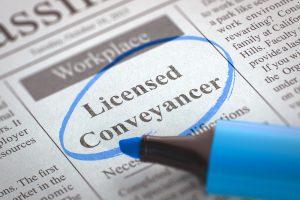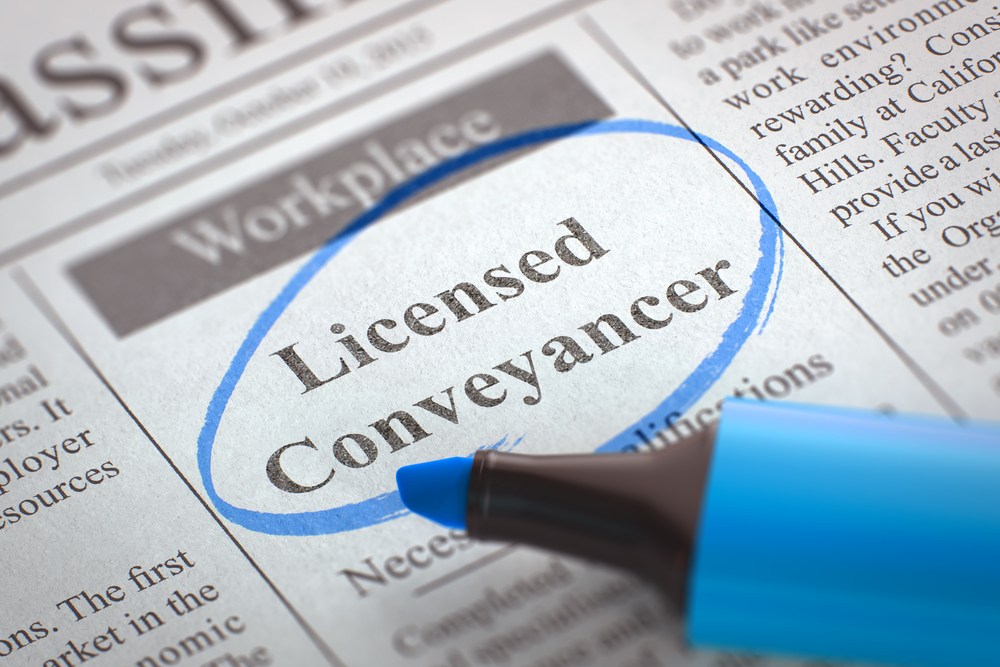Stephen Ward, director of strategy at the Council for Licensed Conveyancers, explains what a conveyancer does in the home buying process
 When you are looking to buy or sell a home, you know the various people you generally need to employ along the way – an estate agent, a mortgage broker, a conveyancer, a surveyor, a remover and so on.
When you are looking to buy or sell a home, you know the various people you generally need to employ along the way – an estate agent, a mortgage broker, a conveyancer, a surveyor, a remover and so on.
It’s pretty obvious what most of them do and how they do it, but do you really understand what your conveyancer is up to? They’re handling the ‘legal stuff’, and it is this work that is often blamed by buyers, sellers and their estate agents for delays in finalising the deal.
Recently, we asked licensed conveyancers what one thing they really wished customers knew before they started. The overwhelming response was that conveyancing is not a quick and easy process.
The average time from offer to completion is estimated at around two to three months but it can take up to four. The government is looking at ways to speed this up, but conveyancers can only work within the system we have now.
Protecting your interests
The first thing to remember is that, unlike an estate agent who, once an offer is accepted, is likely working with both you and the other party, your conveyancer’s priority is protecting your interests alone. That means ensuring you are buying a property that is saleable and mortgageable.
This is vital – the danger for buyers is that, without doing this work, problems may not show up until you want to sell the property several years later and find that you can’t.
Checking for problems
So they have to check there isn’t a problem which could come back to bite you, such as no planning permission for that extension the previous owners did (the council could discover what happened and tell you to demolish it), the highway authority’s plan to run a road through your garden in a couple of years’ time that the owners didn’t know about, or even the existence of a disused coal mine underneath the property into which it could fall. These are all genuine risks.
Then there are complications that often arise from having, say, a shared driveway, or historic restrictions on what you can do with the property (called a restrictive covenant), or a piece of land where it’s not clear whether you or the neighbours will own it.
To get this right, the conveyancer has to read a lot of documents and ask a lot of questions. These are done through searches of various official databases, and other investigations, called enquiries. Even the most straightforward conveyance will have the odd quirk that will require attention.
The conveyancer might well need to ask for your instructions on particular issues and this all takes time. For example, are you prepared to take the risk on that absent planning permission, or do you want the sellers to try and get retrospective permission, or maybe you could take out special insurance to cover the risk?
Transferring ownership of the property
Ultimately, there is a contract required to transfer ownership of the property and while this is standard in many respects, it may well need adapting to your situation. Put simply, as one of our conveyancers said, “there’s unlikely to be such a thing as a ‘quick’ conveyance”.
Also, your conveyancer can only progress your matter as swiftly as other parties – such as the lenders, the search providers and the other side’s lawyer – allow. And then there is the dreaded chain, which is inherently difficult to align. Sometimes, it is simply out of your lawyer’s hands to speed things up.
So don’t be surprised when your conveyancer is unable to guarantee a date for completion when you first instruct them. Until the contract is received, searches applied for, enquiries raised and the finance is in place, it is difficult even to have the discussion beyond generalities.
ID verification
Indeed, even before then, they have to check your identity and your source of funds (beyond any mortgage) because conveyancers are under very strict rules to prevent money laundering and other types of fraud.
“We are human,” pleaded another of our respondents – they have other clients, of course, and cannot necessarily reply to emails within the hour if they aren’t urgent. They will update you as often as possible but no news doesn’t equal bad news.
Upfront
Of course, a good lawyer should tell you all of this upfront. Rules we put in place last December mean that all licensed conveyancers must publish details on their website about the process, timescales and prices so you have that information before you choose who to use. Make sure you ask questions if anything isn’t clear.
The most common cause of complaint about lawyers is a lack of communication, so find out how they will keep you up-to-date (some have apps and other ways of doing this). Emphasise the importance of this to you. And, if you know you’re going to be away or out of contact at any time, do make sure your conveyancer knows in advance.
The legal work to make sure you own your home clear and without impediment is not simply a box-ticking process designed to frustrate you. As one of our conveyancers wanted to say to people, “We actually want happy clients, moving quickly, just as much as you do”.
For further information, please visit: https://www.clc-uk.org/consumers/















It’s interesting to know that conveyancers are lawyers that specialize in transferring properties from person to person. I think that will come in handy for my aunt who just had a divorce but her properties when she was still married are still in disarray. I should try to help her look for a conveyancer to legal counsel.